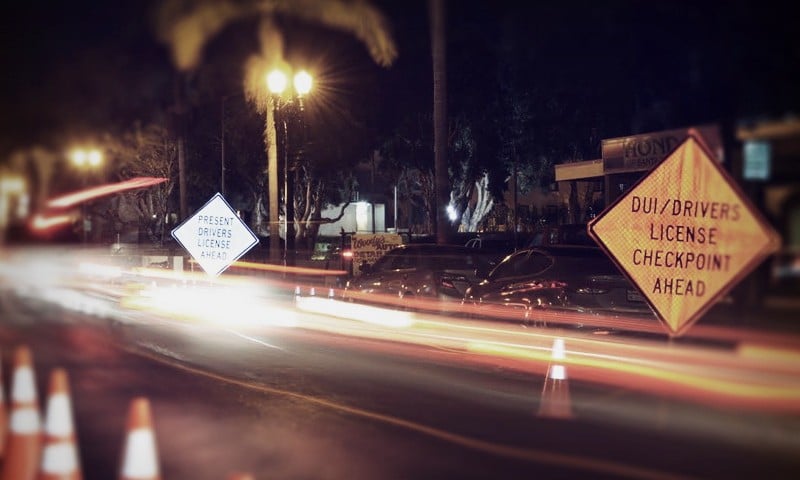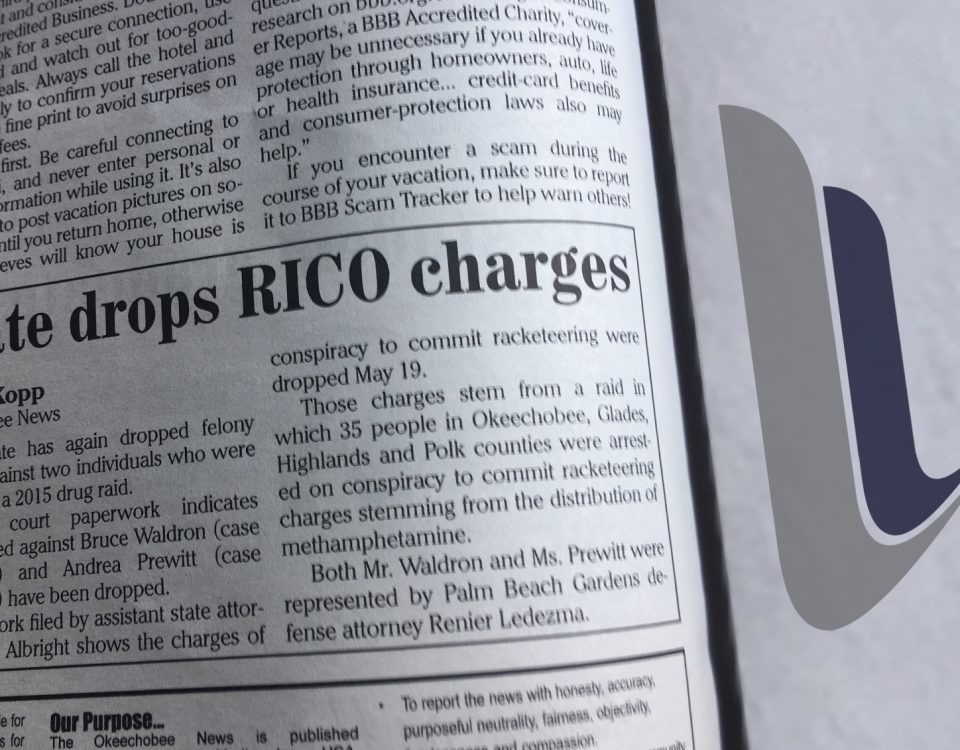- Serving all of South Florida: Broward 954-670-7105 Palm Beach 561-454-9727 and Okeechobee 863-212-4910
What to Do if Pulled over for DUI in Florida

Palm Beach Circumcision Dispute Raises Legal Questions
May 22, 2015
Governor Rick Scott signs a 24 Hour Wait on Abortions performed in South Florida
June 18, 2015First of all, it’s not against the law to drink and drive. But it is against the law to drive while impaired by alcohol. Impairment means the alcohol is affecting your normal faculties (things you do every day such as walking, talking… and driving).
You can avoid this situation completely by simply not drinking and driving.
However, everyday people at times do have wine with dinner, or beer at the ballgame, or drinks at a friend’s wedding. Most adults want to behave responsibly in consuming alcohol and driving, and believe they know their limits. But most have also had little training about the amount of alcohol needed to cause impairment which can lead to big problems in a suspected DUI stop.
The most important point to remember: Florida’s “implied consent” law requires you to take a breath, blood, or urine test if you are arrested for a DUI.
Carefully read the above again. The key phrase is: you are required by law to submit to a chemical test of your blood, breath, or urine to determine your blood alcohol content only AFTER you are arrested. Therefore, the key to avoiding a DUI conviction is avoiding being arrested in the first place.
The minute you are pulled over, get your license, registration, and insurance ready to show, and keep your hands on the upper part of the steering wheel. Realize that every action you take and every word you say over the next few minutes is potentially going to give the officer more reason to arrest you and, if indeed arrested, more evidence that the court can use later in trying to convict you.
Your goal here is to create as small a target as possible.
If you know you have been drinking and driving, and are not absolutely sure that your blood alcohol level is below the 0.08 threshold, the following information is crucial.
At all times, be polite and respectful. Realize that everything happening is likely being recorded.
- The officer needed probable cause to pull you over, so s/he may cite speeding, or not staying in your lane as the reason for the stop. Your reply could be…
- “Officer, with all due respect, I do not believe I moved out of my lane,” or…
- “Officer, I was being careful to stay under the speed limit, and do not believe I was in fact speeding.”
Congratulations. You have just introduced evidence that may be used later to help you fight the reason you were stopped in the first place.
- If the officer asks if you have been drinking, do NOT self-incriminate yourself by admitting any consumption of alcohol.
- Let the officer know it may be your mouthwash they smell.
- The worst possible answer here is, “Just a couple of…” whatever type of alcoholic drink. You have just admitted to drinking and driving— and have likely been recorded doing while doing so.
- Do not voluntarily get out of your car. Do realize that police are experts at asking a question that sounds like a command: “Sir, I’d like to ask you to get out of your car please.” Your answer?
- “Officer, I’m concerned about the safety of getting out of the car on the roadway. I would prefer to remain in my vehicle.”
- The officer is likely to then tell you that s/he needs you out of the car to perform some roadside evaluations. These will be done “to determine if you are sober enough to drive.” Don’t believe it. These tests, like planting one foot in front of the other and balancing, are designed for one thing only: to provide more evidence that you should be arrested for DUI, and more evidence to convict you later.
- Be polite, but say, “Officer, I’m not familiar with your agility tests, and I’d prefer not to undergo them on the side of the road without my attorney present.”
- If the officer insists that you get out of the car, you do need to do so, but only after asking this question: “Am I under arrest?”
- The officer will likely not want to arrest you yet—you have provided little evidence to support doing so. So the officer will likely repeat that s/he is trying to determine if you are safe to drive, and would arrest you only if you prove yourself not capable.
- At this point, you could address the safety concerns by offering to take a cab home.
- You are not admitting that you should not be driving, but are merely trying to address the officer’s concerns.
This tactic may indeed work, especially if you are not visibly impaired. The officer does not wish to have a lawsuit for false arrest filed later, and sending you on your way in a cab may address everyone’s concerns. If your car gets towed, it’s a small price.
- If the officer refuses to let you take a cab, you should tell the officer you want to call your attorney before going any further.
- You are not required by law to be allowed to do this, because, after all, you are not arrested yet, but it is always a good idea to again remind the officer that you do have professional counsel.
- Continue to politely refuse to perform any agility tests, citing safety concerns and lack of familiarity with the exercises.
- Now it may be time for the big litmus test: the portable breathalyzer test. A reading past the legal limit will absolutely get you arrested and is powerful evidence for conviction later. So again, do remember, this test is not required by law until after you are arrested.
- You can cite specific concerns (for the record) in the…
- accuracy of the battery-powered breathalyzer
- health concerns about germs and bacteria
- You can cite specific concerns (for the record) in the…
- potential disease transmission from the device.
- If all the above fails, and you are arrested, you will be taken to the Breath Alcohol Testing Center in order to administer a breathalyzer test. Remember, you have been arrested, and the “implied consent” law states that you need to do so or face suspension of your license. However, there are many valid reasons not to submit still…
- You can simply state there have been documented incidents of the breath machine being inaccurate
- State that you have personal medical reasons which may affect the machine’s accuracy.
- DO be aware that your license will be suspended 6 months for the first refusal and 18 months for the second. The reason you may decide not to take the breathalyzer test after being arrested is…
- The State’s case will be substantially weaker if a breath reading and/or urine test is NOT given.
- A blood sample is only taken in Florida when a person is incapacitated.
- DO be aware that whether you submit to a test or not, it will yield the same result, spending the night in jail. This is not the news you wanted. But the good news is…
- Following the advice above means your DUI attorney will have a much easier fight against your conviction than if you had…
- Admitted drinking and driving
- Failed 4-5 roadside sobriety tests
- Had a Breath/blood alcohol test above the legal limit
- Following the advice above means your DUI attorney will have a much easier fight against your conviction than if you had…
Attorney Ray Ledezma has many years of experience fighting driving under the influence and related charges. Contact our firm for a free consultation.


